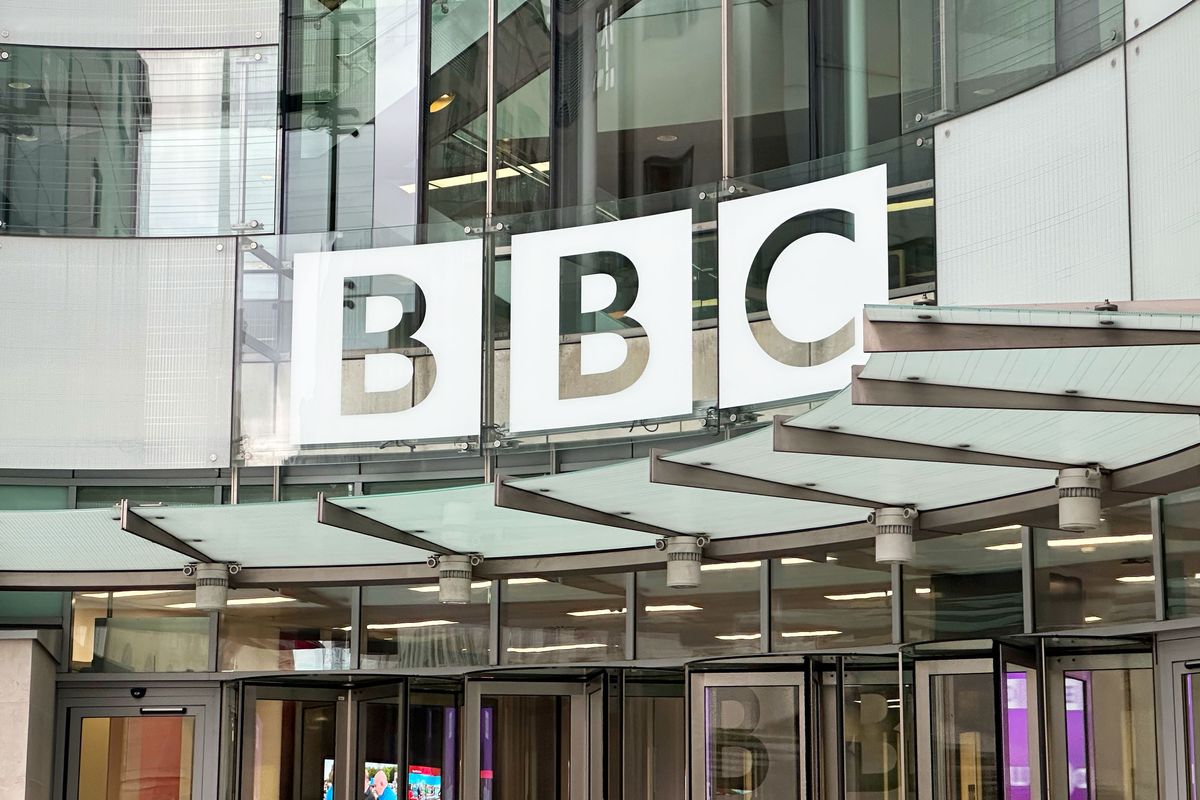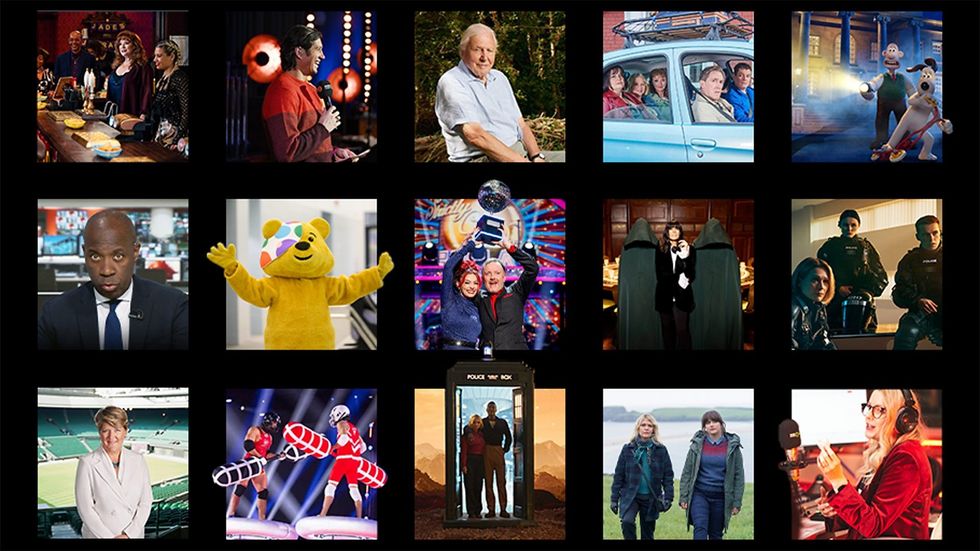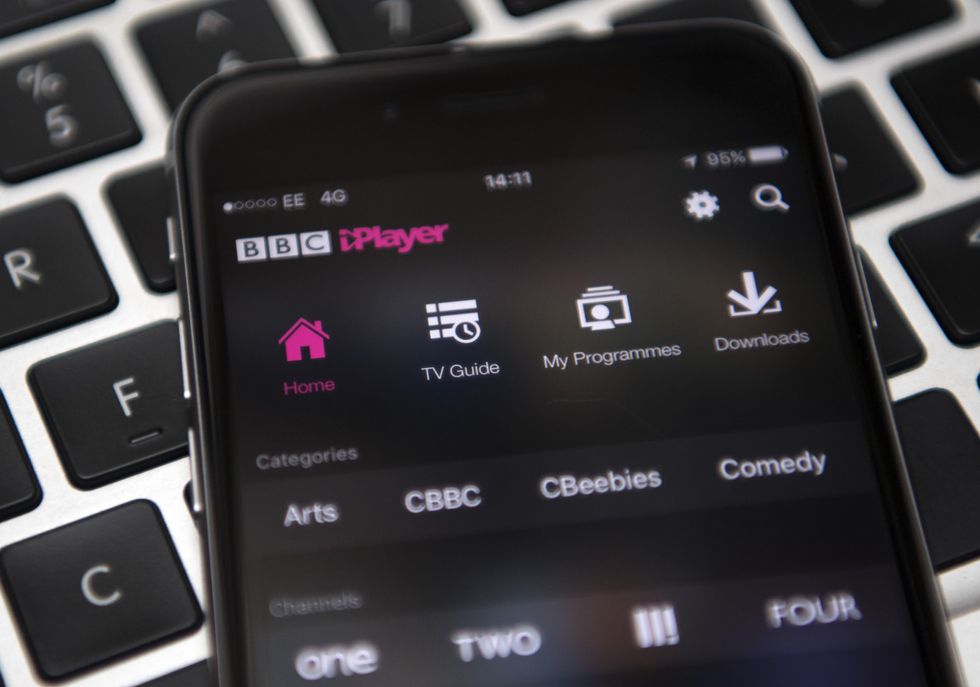Aaron Brown
Guest Reporter

What do you want to see on the BBC — and how much do you want to pay for it?
The BBC has launched its biggest-ever public consultation to find out what viewers and listeners across the UK really think about the broadcaster ahead of a major funding review. The questionnaire — dubbed Our BBC, Our Future — arrives as the TV licence fee increases by £5, rising from £169.50 to £174.50.
If you're caught watching live TV without a TV licence, then you may be fined £1,000 or be taken to court. The maximum fine is £2,000 in Guernsey.
The Labour Government has agreed to increase the licence fee in line with inflation until 2027 when the Royal Charter is up for renewal.

Half a million households cancelled their TV licence fee last year, with British viewers turning away from terrestrial channels in favour of subscriptions like Netflix, Disney+, Prime Video, and Apple TV+, to name just a few. Watching on-demand content on these streamers does not require a TV licence, but there are still circumstances when you'll need to be covered by a licence fee to watch Prime Video, Apple TV+, and Netflix.
Over the next two years, the Government must assess a range of alternative funding models, which range from subscription services to household levies, as the BBC prepares for its biggest transformation in decades.
Rishi Sunak's Government pledged to scrap the funding model altogether when the next renewal came around.
Following the General Election last summer, Keir Starmer and his Government declined to take the same stance. However, Downing Street has remained tight-lipped about exactly what it wants to do with the TV licence fee ahead of the next election, which isn't due until 2029.
In the meantime, the BBC hopes to gather up to one million responses to its multiple-choice-style questionnaire, with findings from the British public due to the published later this year.
Opening the questionnaire for the first time, the introduction reads: “Our BBC, Our Future. We’d love to know your views on the future of the BBC.
“The BBC belongs to all of us. That’s why it matters that we understand what you want the BBC to offer you and your family, and the UK overall. We’d also like your thoughts on some ideas we have for the future.
“There are seven sections in the questionnaire. In total, it will take around 10 minutes to complete. At the end, there will be a chance to tell us anything else important to you about the BBC.
"All of your answers will remain confidential.”
Examples of questions BBC viewers and listeners will be asked are:
- What do you/your family watch, listen to or use?
- What programmes/content do you want from the BBC?
- What should the BBC should provide overall?
- What kind of organisation do you want the BBC to be in the future?
- How do you feel the BBC is now?
- What should the BBC stand for in the future?
Aside from the multiple-choice questions, Our BBC, Our Future also includes a text box where you can share additional thoughts about what the public broadcaster could do to improve.

Want to voice your opinion about the BBC? You'll need a BBC Account.
For those who don't know, this free online account is required to stream live and on-demand shows on BBC iPlayer as well as listen to broadcasts and podcasts via BBC Sounds. If you've done either of those things before, you'll have a BBC Account linked to one of your email addresses.
At the moment, the questionnaire is invite-only. The BBC started to send out invitations at the end of March, so you should find an invite to the questionnaire in your inbox soon.
BBC is prioritising those who regularly use BBC iPlayer or BBC Sounds at the moment. Those who primarily consume BBC programmes on terrestrial television, or radio broadcasts will be quizzed at a later date.
According to the BBC, the responses that it receives to this questionnaire will help inform its ongoing discussions with the UK Government as part of the review of the Royal Charter.
Over time, the BBC's financial situation has become increasingly challenging, with income down £1 billion in real terms compared to 15 years ago. In its latest annual plan, the corporation warned it faces an "unprecedented content funding challenge" as global co-production partnerships have reduced across the sector.
The British broadcaster has slashed 2,000 roles over the last five years as part of what it calls an "aggressive savings programme". However, the BBC now says this approach is "no longer sustainable".
"Without intervention, it will be difficult to maintain the current ambition and volume of UK content," the annual report stated. The corporation enters the 2025/26 year with what it describes as "a smaller, leaner workforce".
Ahead of the Royal Charter review, the BBC isn't sitting still. The corporation says it plans to evolve its services to meet viewers' changing needs as more people move to digital platforms. For BBC iPlayer, this means improving personalisation and creating "more seamless journeys" between the platform and other BBC digital services.
It's also promised to strengthen its news offerings on BBC iPlayer, with breaking news and in-depth documentaries placed at the core of the service. To reach younger audiences, BBC News will expand its presence on TikTok and Instagram.
The corporation will also explore how to harness artificial intelligence "for audiences and our teams" while protecting creators' intellectual property. In audio, the BBC plans to launch four new distinctive music stations on DAB+, subject to regulatory approval.

The BBC's Annual Plan for 2025/26 also outlines several content highlights you can look forward to, including the return of popular shows like The Night Manager, Doctor Who, and Silent Witness. New titles will include Riot Women by Sally Wainwright and Lord of the Flies adapted by Jack Thorne, who recently co-wrote the hit series Adolesence for Netflix.
The corporation will continue its commitment to bringing people together through music events such as Glastonbury, The Proms, and Radio 1's Big Weekend in Liverpool.
BBC Director-General Tim Davie, who unsuccessfully stood as a Councillor for the Conservative Party at the beginning of this career has been in the top job at the corporation since September 2020, said: "The BBC belongs to all of us and we all have a say in its future.
"By taking part in this short questionnaire, people will be able to tell us what they want the BBC to offer, what we do well, what we could do better, and what they want us to focus on in years to come. I hope as many people as possible take a few minutes to tell us what really matters to them and how we can best play our part."
Culture Secretary Lisa Nandy says the UK Government will consider alternative funding models to the TV licence fee. She has ruled out using general taxation to fund the BBC, but dozens of other options remains on the table.
Nandy believes the public should be involved in decisions about the BBC's future funding.
"To maintain the BBC as an institution, it must be accountable to those who fund it – the British people. Instead of tokenistic consultation with the people who pay for it, and backroom negotiations with the government, the BBC should move to a model of being owned and directed by licence fee holders – who can help decide the trade-offs that the BBC must make to secure its future," Lisa Nandy wrote four years in an article for LabourList during her doomed leadership bid.
"This will mean a new structure for the BBC board that focuses on genuine public representation and participation – and greater commitments to transparency.
"This will support greater independence from the government, and protection from the Trump-like assault on free and open media that this government wants to pursue. It is time for all of us to be more forceful in supporting a free and open media. Because if we don’t fight for it, we will lose it and we will all be damaged as a result."
The renewal of the Royal Charter in the next two years will likely determine not just how the BBC is funded, but also its role in British broadcasting for the coming decades.
Find Out More...
